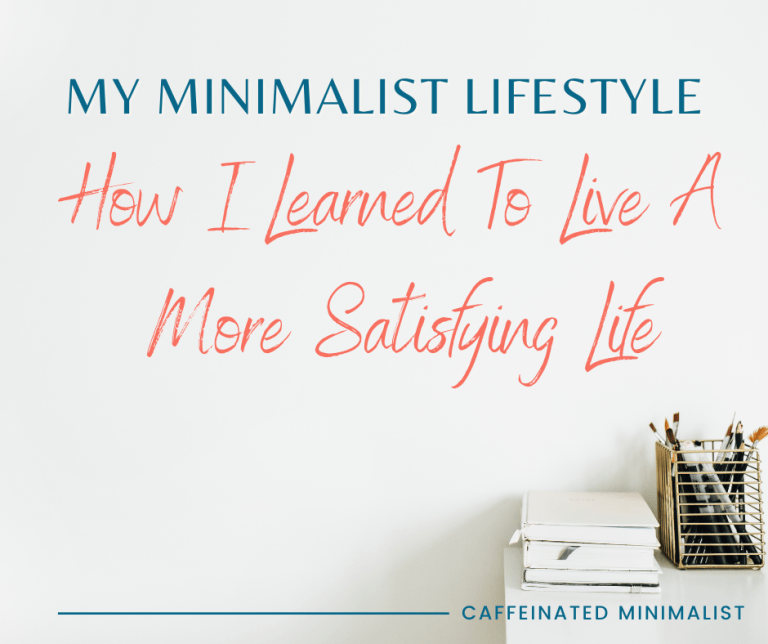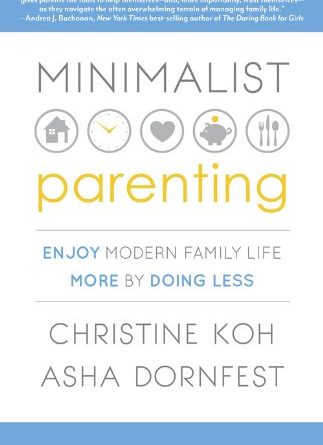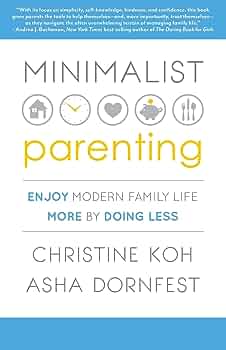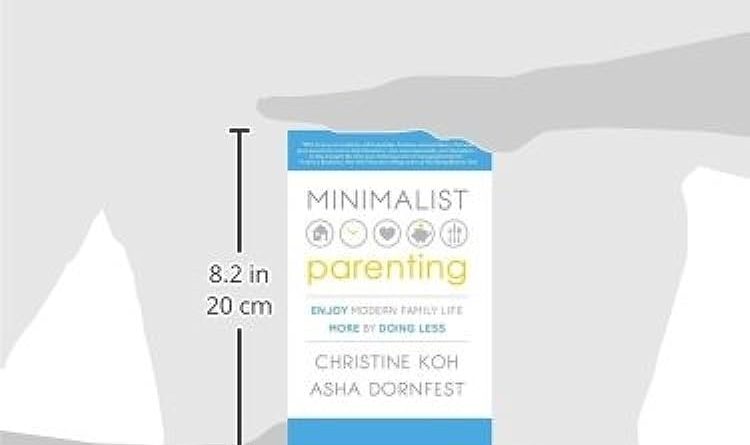
On Nelly’s Life, you’ll find a vibrant community that celebrates the beauty of intentional living. As a mother of three and a dedicated nutritionist, I understand the challenges of balancing a busy life. That’s why I share my personal journey of transformation from a life burdened by excess and unhappiness to one filled with purpose, joy, and wellness. Through my experiences with minimalism and veganism, I offer practical advice, inspiring stories, and thought-provoking insights. Whether you’re a seasoned minimalist, passionate vegan, or simply curious about these lifestyles, NellysLife.com is your go-to resource. Join me on this transformative adventure as we create a life that is not just lived but truly cherished.

Table of Contents
Minimalism and its Transformative Power
Understanding the concept of minimalism
Minimalism is more than just an aesthetic or a trend; it’s a way of life that prioritizes intentionality, simplicity, and purpose. At its core, minimalism is about removing excess and decluttering not just physical spaces but also mental and emotional clutter. It involves making conscious choices about what we bring into our lives and focusing on what truly adds value and joy.
How minimalism can bring about positive changes in life
Embracing minimalism has the power to transform our lives in numerous ways. By letting go of material possessions that no longer serve us and focusing on what truly matters, we create space for what brings us joy and fulfillment. Minimalism helps to reduce stress, increase productivity, and improve overall well-being. It allows us to live more intentionally, making room for activities, experiences, and relationships that align with our values.
The impact of minimalism on overall well-being
When we declutter our physical spaces, we also declutter our minds. This sense of clarity and simplicity leads to reduced stress and increased mental well-being. With fewer distractions and less overwhelm, we can focus on what truly matters and find peace in the present moment. Minimalism encourages mindfulness and self-care, allowing us to prioritize our own well-being and nurture positive relationships with ourselves and others.
The Journey Towards Intentional Living
Recognizing the need for change
Embarking on a journey towards intentional living begins with recognizing the need for change. This could be triggered by feelings of overwhelm, dissatisfaction, or a desire for more meaning and purpose in life. It’s important to listen to our inner voice and reflect on the areas of our lives that feel cluttered and out of alignment with our values. Once we acknowledge the need for change, we can begin taking steps towards intentional living.
Steps to start the journey towards intentional living
Starting the journey towards intentional living is a personal and unique process. It begins with setting clear intentions and identifying our values. By understanding what truly matters to us, we can make conscious choices that align with our priorities. This may involve decluttering physical spaces, evaluating commitments and obligations, and reflecting on our daily routines. Taking small, manageable steps towards intentional living allows us to build momentum and make lasting changes.
Overcoming challenges and setbacks
The journey towards intentional living is not always smooth sailing. It’s important to acknowledge that setbacks and challenges are a natural part of any transformational process. By cultivating resilience and practicing self-compassion, we can navigate these obstacles with grace and continue moving towards intentional living. Surrounding ourselves with a supportive community, seeking inspiration from others who have gone through similar journeys, and being patient with ourselves are all essential in overcoming challenges and staying committed to intentional living.
Decluttering the Physical Space
Understanding the importance of decluttering
Decluttering our physical spaces is an essential step towards intentional living. Our physical environment has a direct impact on our mental and emotional well-being. When our homes are filled with excess possessions, it can create a sense of overwhelm and make it difficult to focus on what truly matters. By decluttering and removing unnecessary items, we create a space that is conducive to peace, relaxation, and clarity of mind.
Practical tips for decluttering one’s home
Decluttering can feel overwhelming, especially if we’ve accumulated a significant amount of belongings over the years. However, with a systematic approach and a mindset of letting go, it can become a liberating and transformative process. Start by tackling one area at a time, such as a closet or a drawer, and sort items into categories: keep, donate, sell, or discard. Be honest with yourself about what you truly need and what brings you joy. Embrace the process of letting go and trust that creating a simpler, more intentional living space will bring about positive changes in your life.
Creating a minimalist living environment
Once you’ve decluttered and simplified your physical space, it’s time to create a minimalist living environment. This involves intentionally curating your belongings and designing a space that aligns with your values and brings you joy. Choose versatile and multi-functional furniture, embrace a neutral color palette, and incorporate natural elements such as plants into your decor. Remember, minimalism is not about having empty spaces, but about creating a space that reflects your personal style and supports intentional living.
Embracing Simplicity in Daily Life
Simplifying daily routines
In our busy lives, it’s easy to get caught up in a whirlwind of tasks and obligations. Embracing simplicity in our daily routines allows us to slow down, be present, and focus on what truly matters. Streamline your morning and evening routines, prioritize self-care activities such as meditation or journaling, and create rituals that bring a sense of calm and intention into your day. By simplifying our routines, we can reduce stress and cultivate a greater sense of well-being.
Letting go of unnecessary commitments and obligations
We often find ourselves juggling numerous commitments and obligations, both personally and professionally. It’s important to regularly assess our schedules and let go of unnecessary or draining activities. Set boundaries and learn to say no to things that do not align with your values or contribute to your overall well-being. By freeing up time and energy, you create space for activities and relationships that bring you joy and fulfillment.
Finding joy in the simple things
In our consumer-driven society, we are constantly bombarded with messages that tell us we need more to be happy. Embracing simplicity allows us to shift our focus from material possessions to the simple joys in life. Take time to appreciate the beauty of nature, engage in activities that bring you joy, and cultivate gratitude for the present moment. By finding joy in the simple things, we can experience a greater sense of contentment and fulfillment.

The Role of Minimalism in Relationships
Creating meaningful connections with loved ones
Minimalism extends beyond our physical spaces and has a significant impact on our relationships. By simplifying our lives, we create space for meaningful connections with loved ones. Make a conscious effort to prioritize quality time with family and friends, engage in deep conversations, and build authentic relationships. By letting go of distractions and focusing on what truly matters, we can cultivate stronger and more fulfilling connections with the people we care about.
Letting go of toxic relationships
Minimalism is not just about decluttering physical possessions; it also involves decluttering toxic relationships from our lives. Identify relationships that no longer serve you, bring negativity, or hinder your personal growth. Letting go of toxic relationships can be challenging, but it allows us to create space for healthier and more supportive connections. Surround yourself with people who uplift and inspire you, and foster relationships based on mutual respect, trust, and growth.
Setting boundaries for a healthier relationship
Setting boundaries is essential for maintaining healthy relationships. By clearly communicating our needs and expectations, we can create a safe and balanced space for both ourselves and others. Identify your limits and communicate them openly with your loved ones. Setting boundaries not only protects your well-being but also fosters healthier and more harmonious relationships.
Minimalism and Mental Well-being
Reducing mental clutter and overwhelm
Mental clutter can be just as burdensome as physical clutter. Our minds are bombarded with endless thoughts, worries, and distractions, which can lead to overwhelm, stress, and anxiety. Minimalism helps us reduce mental clutter by simplifying our lives and focusing on what truly matters. Through decluttering physical spaces, practicing mindfulness, and setting boundaries, we can create mental clarity and peace.
Finding inner peace through minimalism
Minimalism is a pathway to finding inner peace. By letting go of attachments to material possessions and societal expectations, we cultivate a sense of peace and contentment within ourselves. Embrace the practice of mindfulness and being present in the moment. Find joy in the simple pleasures of life and let go of the need for constant busyness. By embracing minimalism, we can find a deeper sense of inner peace and fulfillment.
Practicing mindfulness and self-care
Mindfulness and self-care are essential components of minimalism and mental well-being. By practicing mindfulness, we cultivate awareness and presence in our daily lives. This allows us to fully experience each moment and reduce stress and anxiety. Self-care involves prioritizing activities and practices that nourish our physical, mental, and emotional well-being. This may include meditation, exercise, journaling, or engaging in hobbies that bring us joy. By practicing mindfulness and self-care, we can enhance our overall well-being and fully embrace the transformative power of minimalism.

Introduction to Veganism
Understanding the principles of veganism
Veganism is a lifestyle and dietary choice that seeks to exclude the use of animal products for ethical, environmental, and health reasons. Veganism involves abstaining from the consumption of meat, dairy products, eggs, and other animal-derived ingredients. It is rooted in the belief that animals deserve to be treated with compassion and respect.
Exploring the ethical considerations of a vegan lifestyle
Ethics play a significant role in veganism. Many individuals choose to embrace a vegan lifestyle out of concern for the welfare and rights of animals. Veganism rejects the exploitation of animals for food, clothing, and other purposes. By adopting a vegan lifestyle, individuals contribute to reducing animal suffering and create a more compassionate world.
The environmental impact of animal agriculture
Animal agriculture has a significant impact on the environment, contributing to deforestation, water pollution, and greenhouse gas emissions. The production of meat and dairy products requires extensive land, water, and resources. By choosing a vegan lifestyle, individuals can significantly reduce their environmental footprint and contribute to a more sustainable future.
Plant-Based Nutrition for a Healthier Life
Transitioning to a plant-based diet
Transitioning to a plant-based diet involves replacing animal products with a variety of plant-based alternatives. This includes consuming fruits, vegetables, legumes, whole grains, nuts, and seeds. It’s important to approach this transition with an open mind, as well as seek guidance from a healthcare professional or a registered dietitian to ensure proper nutrient intake.
Balancing macronutrients and essential nutrients
A well-planned plant-based diet can provide all the necessary macronutrients and essential nutrients our bodies require for optimal health. Protein can be obtained from sources such as legumes, tofu, tempeh, and seitan. Essential nutrients like vitamin B12, omega-3 fatty acids, iron, and calcium can be obtained through fortified foods or supplements. Variety and balance are key in ensuring a nutrient-rich plant-based diet.
The benefits of a vegan lifestyle for overall health
Adopting a vegan lifestyle has numerous health benefits. Plant-based diets are rich in fiber, antioxidants, and phytochemicals, which can reduce the risk of chronic diseases such as heart disease, type 2 diabetes, and certain types of cancer. Vegan diets are also generally lower in saturated fat, cholesterol, and processed foods, which can promote weight loss and improve overall health markers.

Sustainable Living and Veganism
Reducing waste and embracing eco-friendly practices
Veganism and sustainable living go hand in hand. By choosing a plant-based diet, individuals contribute to reducing the demand for animal-derived products, which require extensive resources and contribute to environmental degradation. Additionally, veganism encourages reducing waste, recycling, and embracing eco-friendly practices such as using reusable bags, bottles, and containers.
Choosing ethical and cruelty-free products
Veganism extends beyond dietary choices; it also encompasses using ethical and cruelty-free products. By opting for vegan and cruelty-free cosmetics, personal care products, and household items, individuals can contribute to the well-being of animals and reduce their environmental impact. This involves reading labels, researching brands, and making conscious choices that align with vegan and ethical principles.
The impact of veganism on environmental sustainability
Veganism has a significant impact on environmental sustainability. The production of animal-based foods requires large amounts of land, water, and resources, which contribute to pollution, deforestation, and greenhouse gas emissions. By choosing a vegan lifestyle, individuals contribute to reducing their carbon footprint, conserving natural resources, and promoting a more sustainable future for our planet.
Building a Minimalist and Vegan Community
Finding like-minded individuals and support
Building a community is an essential aspect of embracing a minimalist and vegan lifestyle. Finding like-minded individuals who share similar values and goals can be empowering and inspiring. Seek out local vegan and minimalist groups, attend events or workshops, and connect with others online through social media or forums. By surrounding yourself with a supportive community, you can exchange experiences, gain insights, and navigate the challenges and joys of this transformative journey together.
Sharing experiences and inspiration within the community
Within a minimalist and vegan community, sharing experiences and inspiration is vital. By sharing personal stories, challenges, and successes, individuals can provide support and inspiration to others. This exchange of knowledge and ideas can foster a sense of belonging and create a ripple effect of positive change within the community.
Creating a ripple effect of positive change
By embracing a minimalist and vegan lifestyle, we can create a ripple effect of positive change in our communities and beyond. Our choices have the power to inspire and influence others, whether it’s through our lifestyle, conversations, or actions. By being true to our values and sharing our journey, we can inspire others to make conscious choices that align with their own values and contribute to a more compassionate and sustainable world.
In conclusion, minimalism and veganism offer powerful tools for personal transformation and a more intentional, compassionate, and sustainable way of life. By embracing simplicity, decluttering physical and mental spaces, prioritizing meaningful connections, and making conscious choices about the foods we consume and the products we use, we can create a life that aligns with our values and enhances our overall well-being. The journey towards intentional living and embracing a minimalist and vegan lifestyle is unique to each individual, but with support, inspiration, and a commitment to personal growth, we can navigate this transformative path and create a life that is truly cherished. So join the movement, be part of the community, and begin your own journey towards a purposeful and simplified life. Welcome to a life where minimalism and veganism converge for your well-being and the well-being of the planet.








